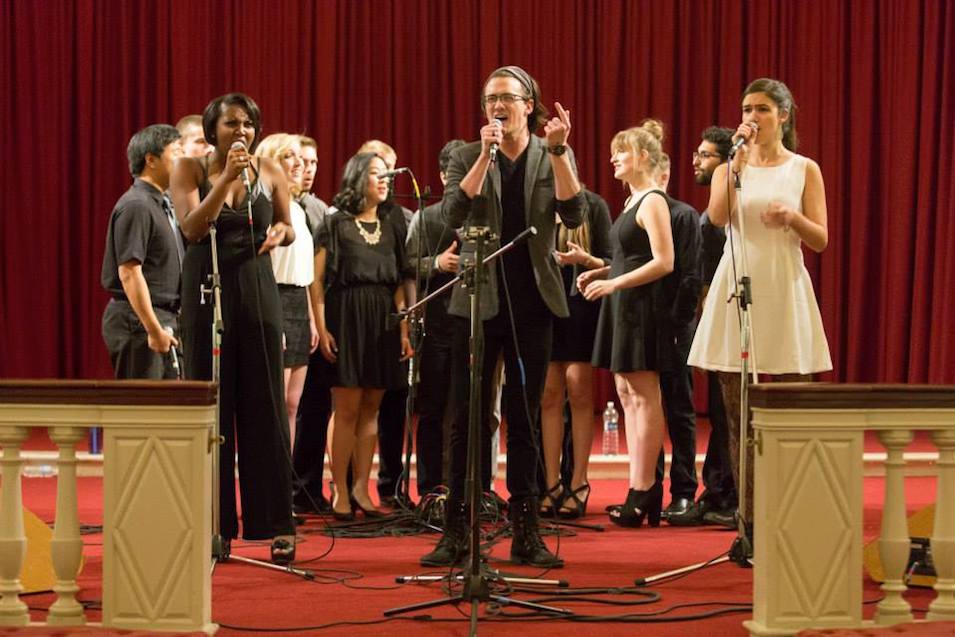University of Maryland a cappella group Faux Paz has only made it to the finals once before. Now they’re back. The 17-member crew is headed to New York’s Beacon Theatre on Saturday to compete against some of the best young harmonists in the world in the International Championships of Collegiate A Cappella.
But a lot has changed since Faux Paz’s appearance in 2002. That was seven years before the Sing-Off, an American Idol-like a cappella show, debuted on NBC, and a decade before Anna Kendrick showed us her knack for making music with plastic cups in Pitch Perfect.
“The collegiate a cappella scene has evolved and changed immensely,” says Faux Paz co-president Brandon Schatt. “There’s been an explosion in popularity over the last few years.” Groups like Pentatonix and movies—like Pitch Perfect and its highly anticipated sequel, which opens May 15—have helped those crooning 20-somethings go from subculture to mainstream.
There used to probably be only a few scattered groups on campus. Now, big schools like the University of Florida can have as many as a dozen different troupes; Maryland has ten. In the past, a cappella groups preferred lighthearted arrangements based on pop hits. Today, they’re about rousing the crowd with creative takes on all types of tunes. “It used to be more campy, but now we see groups doing darker music in general and putting more thought into the ideas that are coming out of it, as opposed to railing off of the biggest songs in America,” Schatt says.
Some of that comes through in Pitch Perfect, as does the tendency for a cappellaists to take themselves too seriously. “I love the movie,” Schatt says. “It pokes fun at the craziness of a cappella. Sometimes you have to step back and remember it’s a group of people making funny noises and imitating popular songs.”
But there’s also a lot of things the movie gets wrong. That amazing riff-off scene where Kendrick sings Blackstreet’s “No Diggity”? “That would probably never happen,” Schatt says. “I don’t know anybody that could spontaneously jump in on the right key and sing at the same time.” How about those killer dance moves? “One of the things that’s inaccurate is how easy they make it look. They do choreography and sing. There’s no way you could do all that crazy stuff and still sound that good.”
And as for those rivalries? Sure, a cappella can get intense sometimes, but overall it’s not as dramatic as Hollywood makes it seem. At the finals, Faux Paz will battle against groups like the University of Chicago’s Voices In Your Head and the University of Southern California’s SoCal VoCals. The latter is the country’s winningest a cappella group; they’ve won the championship every single time they’ve placed. “They win every time and are known for being awesome, but I don’t consider it a rivalry,” Schatt says. For them, it’s about getting to the finals, having fun, and showing people what they’re about.
The Faux Paz have been practicing about five days a week in preparation for Saturday. And though it’s easy to get stressed out about what’s at stake, Schatt says they do their best to remember a cappella is all about singing well and just having a good time. “If you’re doing the music and you’re doing it really well, I think there’s a cool factor that comes with that,” he says. “You can’t help but enjoy it.”















